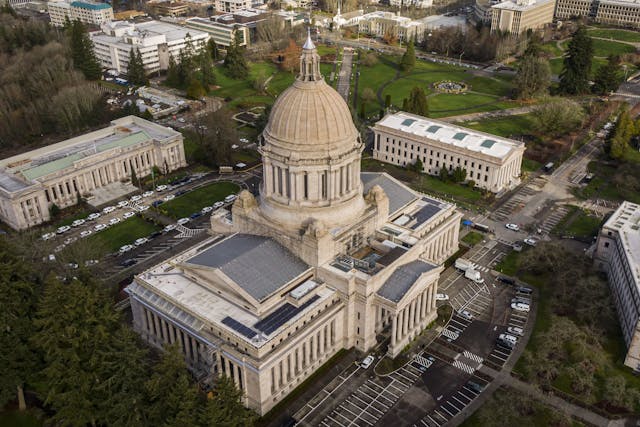Washington state passes bill to halt new gasoline-powered vehicle sales starting in 2030
The dominos are falling in the war on gasoline-powered automobiles. Washington State lawmakers have passed a bill to stop sales of gasoline-fueled vehicles there beginning in 2030. That’s five years ahead of California, Massachusetts, and New Jersey, which have all set a deadline of 2035.
The Environmental Protection Agency says transportation is the no. 1 source of greenhouse gas emissions in the United States.
Though these changes are starting to gain traction in U.S. states, the anti-fossil fuel trend around the globe is well underway. At least 15 other countries—including the U.K. and Japan—have established plans to sales of new gasoline cars, and others have established stringent policies to spur EV adoption.
“Europe and China have woken up to the fact that [the combustion engine] is dead,” Arndt Ellinghorst, automotive analyst at Bernstein Research, told the Wall Street Journal last fall. “Now, it looks like the U.S. is waking up.”

According to Automotive News, Washington’s target is not a firm mandate and is contingent on the state adopting a tax on vehicle miles traveled, a measure that aims to pay for new transportation infrastructure. Washington’s 2030 electric vehicle goal would kick in as soon as three-quarters of the state’s registered vehicles are subject to a so-called road usage charge.
If signed into law, the new measures will not ban the sale of gasoline—only the sale of new gasoline-powered vehicles.
Automakers are now in a race to develop battery and EV technologies, and some have even joined states in promising an end to the production of gasoline-powered vehicles within 15 years. In January, General Motors announced that it will stop making gas-powered cars and trucks and exclusively produce zero-emissions vehicles by 2035. Volvo has promised that its entire car lineup will be fully electric by 2030, as will Ford’s European lineup.

“General Motors is joining governments and companies around the globe working to establish a safer, greener and better world,” CEO Mary Barra said in a statement. “We encourage others to follow suit and make a significant impact on our industry and on the economy as a whole.”
Although environmentalists applaud these moves, major concerns from consumers surrounding EVs are high cost, battery charging speed, battery range, and the charging station infrastructure to support longer trips. Those reservations, however, are at present not slowing the direction of the new-car market.


